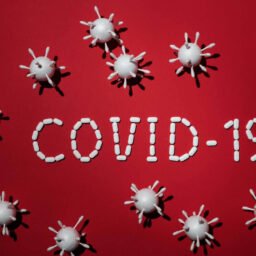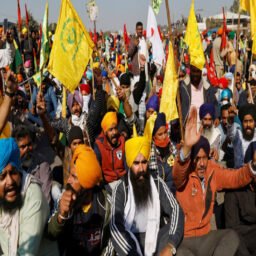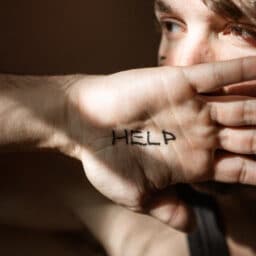“We read humans beings need oxygen for surviving in school,
But we learned that in this Pandemic”
INTRODUCTION
Mechanical ventilators for a patient can be the deciding factor if a patient may or may not live, some may need it for few hours while some require it for 2-3 weeks some for a longer period in which case that patient goes undergoes tracheostomy. If a patient who requires a ventilator does not receive one the chance for his death increases exponentially1.
After the start of the pandemic the Indian Medical Association had provided ethical and medical guidelines for the treatment of COVID 19 patients to the medical community which clearly states that the answers of a moral or ethical dilemma have to be given on the basis of four principles (i) beneficence, (ii) non-maleficence, (iii) parental autonomy, and (iv) justice.2 Here the main principle that the medical community gave here to focus on, is that of justice or the foundational and fundamental rule of “save the most lives”3 This principle, unfortunately, has the various section of laws that it might violate.
Various Laws that are infringed:
- Human Rights law4
- Article 2 of the European Convention on Human Rights (ECHR) – Right to Life
- Article 3 of the European Convention on Human Rights (ECHR) – Right not to be subject to degrading treatment
- Article 8 of the European Convention on Human Rights (ECHR) – Right to Respect one’s family and private life, it also includes the duty of a medical professional to consult the family of a patient to whom life-sustaining treatment is being denied.
- Article 14 of the European Convention on Human Rights (ECHR) – Right to protection of the above-mentioned rights without being Discriminated.
- Article 21 of the Indian Constitution
- Professional regulations
The guidelines and rules created by the Indian medical association for an ethical and moral dilemma.5
POSSIBLE VIOLATIONS
The debate on the allocation of ventilator policies has a direct derogation of the myriad laws and ethical guidelines laid out by the IMA, if the ethical guidelines are not followed the unlawful actions of hospitals may result in unlawful loss of life of a patient.
Let’s take the example of subjective judgments which are made by medical professionals on case to case basis, If there is no pre-decided law or policy which dictates the decision taken by them, then the decisions may be subjected to being inconsistent, unfair, arbitrary, and Discriminatory and as mentioned this process itself can be considered as potentially illegal.
Any medical professional who withholds or withdraws a mechanical ventilator already has a risk of legal liability6, under a circumstance of the already existing triage protocols the transferring of a ventilator to a patient who has a better chance of surviving from a patient who has shown no improvement or is in bad shape, all of the above-mentioned cases are decided on the rule of “save the most lives”. The Ideal example being – the particular medical assessment of a 60 years old patient who is not in the top condition of his health who requires a ventilator should not be influenced or supplanted or discriminated against a 50 years old patient.
RECOMMENDATIONS
1. The ventilator of a patient should not be removed or withdrawn before the time duration recommended by doctors as the patient might further also clinically indicate the need for being ventilated. If the situation satisfies the protocols and rules set by the triage policy for withholding treatment the necessary steps shall follow.
Reasoning – The process of withdrawing a ventilator for whom it is indicated to be ventilated and starting that patient on an active treatment plan (To stop sedating the patient, So that his respiratory reflexes kick in.) And even this for the purpose of Article 3 of ECHR. This cannot be considered as intentional withdrawing or deprivation of the patients’ life. Although you have to take into consideration the limits of availability of medical resources of the particular state or union territory.
Even this type of withdrawal of ventilator can be held as a direct breach of duties of medical professionals if a patient dies in their care due to their negligence, they are liable under the various relevant section of laws – Civil law (Negligence) and Criminal law (Gross negligence (304A IPC), manslaughter (300 IPC), willful neglect (129 of IPC), Ill-treatment, criminal battery (350 IPC) )7
Therefore, as mentioned above, the decision taken by the medical professional has to be very carefully, the life of a person rests on the judgment of that medical professional, He has to take factors such as the patients chance of recovery and quality of life that he may enjoy If the judgment is successful.
2. Now, to the contrary of the recommendation given above, If a policy which allocates and decides the withdrawing and withholding of a ventilator solely based on prioritization of patient by a medical professional on the factors such as his recovery rate, the criticalness of the patient in terms of his health.
If a medical professional decided to go with above-mentioned policy he has to disclose this policy to the patient who might be affected due to it and also for acquiring their consent to incubation and ventilation.
If the medical professional fails to comply with the above-mentioned protocols and does not inform or discloses the necessary information regarding the policy to the patients, It will be a direct breach of his duty to disclose information. 8
CONCLUSION
If the ventilator allocation policy decided by ICMR is going to be based on the policy of “Save the most lives” the Indian medical Association should closely monitor the policy so that it does not violate any legal rights of the patients. And any family of the patient who might think that the ventilator was unlawfully withdrawn should have the right or ability to approach any Court of the relevant jurisdiction and have these issues discussed.
The policy of “Save the most lives” should be pushed as the general ethical policy But only if it is carefully scrutinized at every step so that the medical professionals following the law would not commit as an unlawful act which might result in unlawful death of a patient, And the more important thing to remember is that – “Legal Right of Patients Matter”
Author(s) Name: Rugved Mahamuni (Student, Pune University)
References:
- https://www.usatoday.com/story/news/health/2020/04/08/coronavirus-cases-ventilators-covid-19/2950167001/
- https://www.karger.com/Article/FullText/509119
- https://jme.bmj.com/content/46/7/421
- https://www.echr.coe.int/documents/convention_eng.pdf
- https://www.imanet.org/career-resources/ethics-center?ssopc=1#:~:text=IMA’s%20overarching%20ethical%20principles%20include,organizations%20to%20adhere%20to%20them.
- https://jamanetwork.com/journals/jama/fullarticle/2764239
- https://legislative.gov.in/sites/default/files/A1860-45.pdf
- https://www.supremecourt.uk/cases/docs/uksc-2013-0136-judgment.pdf
















